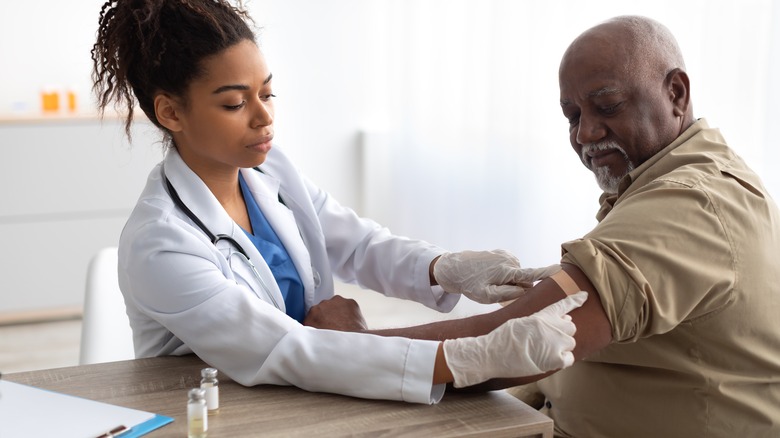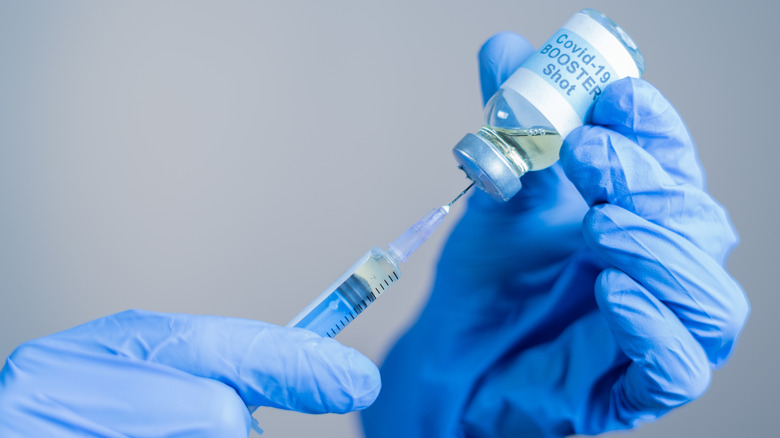The Latest Guidance On A Second COVID Booster Shot
While COVID vaccines have been extremely effective in preventing and lessening the severity of the virus, they, like many other vaccines, often begin to lose their power after a while and require a boost in order to maintain the same level of protection (via Johns Hopkins Medicine). This is where booster shots come in.
According to WebMD, the antibodies that form when you receive a vaccine help to recognize and fight off the virus or infection if you happen to contract it. Because antibody levels may decrease over time, a booster can help to supplement that protection by increasing antibody levels.
With the spread of new COVID-19 subvariants, there have been questions and mixed messages around who should be getting a second booster shot and when to get them. The Centers for Disease Control and Prevention (CDC) has now released new guidance in an attempt to clear up the confusion.
Who should be getting a second COVID booster shot
Reports NBC News, thanks to an increase in COVID-19's contagious new subvariants, there has been a slight surge of coronavirus infections over the past two weeks, specifically, a 22% increase in infection cases and a small growth in the number of hospitalizations and deaths reported. To increase protection against these new subvariants, advisors for the Centers for Disease Control and Prevention (CDC) are recommending that anyone 50 and older who is considered high risk, who lives with anyone considered high risk, or who works in an environment that requires contact with large groups of people receive a second COVID-19 booster (via NBC News).
Those who are considered low risk or who have already contracted the Omicron variant can wait until the fall to receive their second booster. As reported by NBC News, vaccine suppliers are working on upgrading their booster shots in order to effectively manage the Omicron variant that may bring another surge this coming fall and winter.


